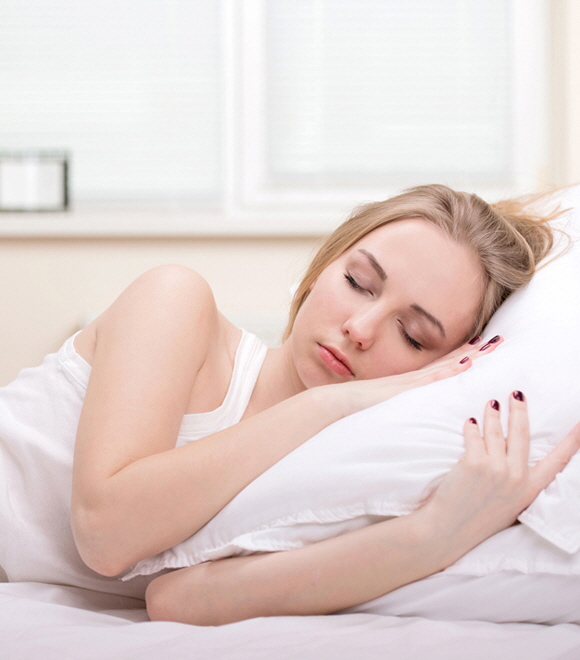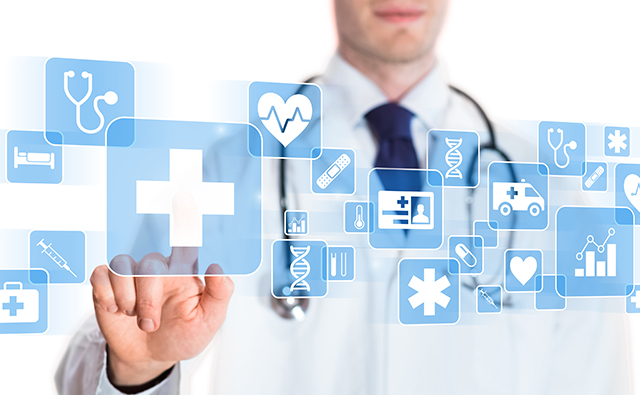

Why should you receive treatment
for Sleep Apnea Syndrome in AMC?
Snoring is a symptom that appears when the upper airway is partially narrowed. It occurs when the flow of air becomes faster in the narrowed airway between the pathway from the nose to upper airway, making the soft membranes of the airway vibrate. People snore only during sleep because muscle tension increases when they are awake, preventing the vibration of tissues even though air flows faster. Also, the membranes are prone to flutter because during sleep muscles are relaxed. Sleep apnea is characterized by pauses in breathing for more than 10 seconds as the airway is obstructed during sleep. It happens due to the narrowed airway, causing a drop in breathing capacity and hypoxia. Subsequent sleep fragmentation, hypoxia, and sleep architecture disturb the nervous system, leading to cardiovascular complications and a decline in cognitive functions.
How is it diagnosed?

PSG (Polysomnography), which is a test used to diagnose sleep disorders, collectively measures sleep EEG, eye movement, muscle movement, breathing, and ECG. All the meanwhile, the test records the sleeping patient on a video tape. Examination results are analyzed to diagnosis the quality of sleep and the possibility of associated diseases to determine a treatment protocol. PSG is a noninvasive and safe way to examine many important physical functions during sleep as well as sleeping problems.
Testing Method
This test does not require hospitalization. A patient visits the hospital around at 6 to 7 in the afternoon and sleeps in a cozy test room. The patient will go home early next morning.
1) Before the test, the patient’s height, weight, and vital signs will be confirmed. The patient will also fill out a questionnaire on sleep patterns.
2) If the patient is currently taking any drugs, he or she should bring them or know the name and effects of the drug.
3) The test will start when the patient falls asleep after applying EEG electrodes on the head to measure sleep stages. The patient will wear sensors on the nose, chest, and around the abdomen to measure breathing. Electrodes on the eyes and limbs are also attached to measure the movement and tension of jaw muscles. Lastly, ECG electrodes will be placed on the chest.
Treatment options
-
Surgery
Surgery for snoring and sleep apnea is called UPPP (Uvulopalatopharyngoplasty) which is performed by the department of otolaryngology. This surgery widens the space in the neck by cutting off the uvula. The Uvula drops down in the back of the neck. It is part of the palate (soft palate) that is surrounded by the tonsils and mucous membrane.
-
Dental devices
Devices are applied to move the lower jaw forward by the department of dentistry. The devices are attached to the teeth in the upper and lower jaws. They move the lower jaw forward and maintain its position. The devices are designed to widen the diameter of the airway by moving the jaw forward. This increases the resistance of airway stenosis caused by negative pressure when breathing in.
-
CPAP: (Continuous Positive Airway Pressure)
CPAP is a therapy used for patients with sleep apnea syndrome. The CPAP prevents the airway from collapsing by forcing air into the nose in the form of a mask to increase the muscle tension of the airway, making breathing more comfortable.
AMC’s test performance
Starting with two single patient PSG test rooms from July 2003, AMC’s test rooms have increased more than double, now holding five cozy PSG test rooms. Around 1,000 patients were tested every year, and 26% of them were overseas patients.
Medical staff of PSG room
Medical professionals of the departments of neurology, otolaryngology, pulmonology and critical care medicine, psychiatry, dentistry, and health medicine consult, prescribe, and treat patients depending on their symptoms. Not to mention, all of the medical staff in the PSG room acquired the RPSGT (Registered Polysomnographic Technologist) License to provide precise test and accurate readings.
